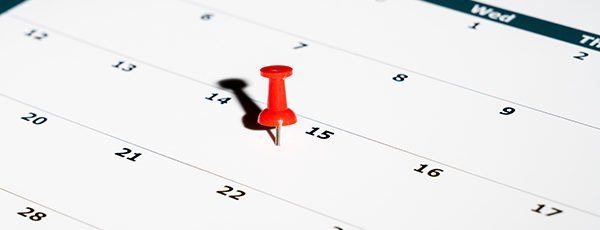Need to Skip a Loan Payment Because of COVID-19? Talk to Your Lender Now

ByMolly Zilli
UpdatedJul 17, 2025
- During the COVID crisis, many borrowers are considering skipping a loan payment.
- The first thing you need to do is talk to your lender ASAP and check out your options, including forbearance.
- If you are struggling with your monthly payments and can't reach an agreement with your lender, then look for other debt-relief options.
Table of Contents
There’s no denying the fact that COVID-19 has upended our daily lives, threatening both our health and financial well-being in a sudden, profound way. While we do our best to stay healthy, businesses are closing, jobs are disappearing or being cut back, and conditions are changing rapidly.
So, it’s understandable to worry about things like making ends meet and keeping a roof over your head. It’s also normal to question whether or not you’ll need to skip a loan payment during these precarious times. This isn’t a crisis you created, and many people are in the same boat. But if you can’t make a loan payment, it’s important to know your options, make a plan, and make some calls.
Talk to lenders ASAP
First, you should feel no shame if you don’t think you can pay all your bills right now – you are not alone. Most of us are worried about keeping afloat in an economy we see as declining. In a recent study commissioned by Freedom Debt Relief, 66 percent of respondents felt the current economic conditions in the U.S. were poor or very poor. Just two months earlier, over 70 percent said they were the same or better off financially than they had been the previous year. The shift from financial optimism to pessimism has been both sudden and widespread.
On a more specific level, the current study revealed that well over half of respondents are worried about being able to feed themselves and their families, and nearly half say they will miss payments on some bills within the next six months. So, if you’re concerned about paying your mortgage, car loan, student loan, or other bills, you’re in good company with plenty of other hard-working Americans.
However, while there is some solace in knowing we’re in this together, it also means lenders are and will be inundated with inquiries about loan forbearance, modification, and the like. So, it’s crucial to start communicating with them as soon as possible if there’s a chance you may need to skip your next loan payment. Additionally, while there are some protections in place and in the works, most aren’t automatic, and you don’t want to assume that your lender will simply let a missed payment slide. Make the call and work out a plan.
What to expect from your lender
So what are some potential outcomes when you tell your lender you need to skip a loan payment because of coronavirus? Here are a few possibilities:
Your bank may offer a payment deferral for up to 120 days with no late fees for your mortgage or home equity loan.
Your student loan lender may allow you to postpone your payments (payments have been automatically stopped for individuals with federal student loans until September 30, 2020).
You may be able to postpone your car loan payment or credit card bill for a few months without late fees (but finance charges could still accrue).
Your lender could allow you to make partial payments or interest-only payments on a temporary basis.
Regardless of the plan your lender offers, be sure to ask what billing will look like once your temporary payment plan ends. You don’t want to be surprised by balloon payments, higher interest rates, or other fees. Additionally, while the federal government has halted foreclosures on mortgages guaranteed by Fannie Mae and Freddie Mac, and some local governments have suspended evictions, you should still communicate with your lender or landlord, since those suspensions will eventually end.
Assess your finances and prioritize bills
Of course, you’ve got more bills to pay than just your loans. Once you have an attack plan for those larger debts, you’ll need to figure out your other expenses. First, assess your current monthly income, savings, and any emergency funds you have available. Next, list out your expenses, like your average monthly groceries cost, rent, cell phone bills, utilities, insurance, cable, transportation costs, entertainment, restaurant spending, etc. Having a budget is especially essential during times like these.
If you can’t pay all your bills, prioritize the essentials, like food, housing, and utilities. Cut out all non-essential spending if the budget is tight – things like cable, eating out, or subscriptions. And again, if you can’t pay for other important things, such as rent or cable, let the appropriate individuals know so you can work out a plan or at least know what to expect as a consequence of non-payment.
Explore other resources
As data from FDR’s survey indicates, a startling number of Americans have experienced layoffs, furloughs, or reductions in pay. And with more than half of respondents reporting that they have less than $1,000 in their checking and savings accounts combined, many are already struggling to pay their bills.
So, in addition to assessing your current finances and working with your lenders, it’s a good idea to explore other potential sources of income and assistance. For example, the federal government has passed a number of relief packages recently, aimed at helping individuals, small businesses, and corporations. These include checks, increased unemployment benefits, and paid leave. And while many jobs have been scaled back or cut completely, there are companies who are hiring. Adding up various benefits, assistance, and income from a new job or side hustle can do a lot toward helping you get through these stressful times.
Get extra help with your debts
The effects of COVID-19 have been sudden and widespread. So, it’s no surprise that many are struggling financially, including those of us deciding if we need to skip a loan payment. If you’re struggling with debt or are just worried about falling behind on payments, it might be time to take action. Freedom Debt Relief is here to help you understand your options for dealing with your debt, including our debt settlement program. Our Certified Debt Consultants can help you find a solution that will put you on the path to a better financial future. Find out if you qualify right now.
Editor’s Note, April 27, 2020: As a reply to “ongoing misinformation” The FHFA has confirmed that if you request forbearance for your Fannie Mae or Freddie Mac- backed mortgage, there will be no lump sum repayment required at the end of the forbearance period. While this currently applies to Enterprise-backed mortgages only, FHFA Director Mark Calabria has encouraged all lenders to “adopt a similar approach.”
A look into the world of debt relief seekers
We looked at a sample of data from Freedom Debt Relief of people seeking the best debt relief company for them during June 2025. This data highlights the wide range of individuals turning to debt relief.
Age distribution of debt relief seekers
Debt affects people of all ages, but some age groups are more likely to seek help than others. In June 2025, the average age of people seeking debt relief was 52. The data showed that 22% were over 65, and 15% were between 26-35. Financial hardships can affect anyone, no matter their age, and you can never be too young or too old to seek help.
Personal loan balances – average debt by selected states
Personal loans are one type of installment loans. Generally you borrow at a fixed rate with a fixed monthly payment.
In June 2025, 44% of the debt relief seekers had a personal loan. The average personal loan was $10,718, and the average monthly payment was $362.
Here's a quick look at the top five states by average personal loan balance.
| State | % with personal loan | Avg personal loan balance | Average personal loan original amount | Avg personal loan monthly payment |
|---|---|---|---|---|
| Massachusetts | 42% | $14,653 | $21,431 | $474 |
| Connecticut | 44% | $13,546 | $21,163 | $475 |
| New York | 37% | $13,499 | $20,464 | $447 |
| New Hampshire | 49% | $13,206 | $18,625 | $410 |
| Minnesota | 44% | $12,944 | $18,836 | $470 |
Personal loans are an important financial tool. You can use them for debt consolidation. You can also use them to make large purchases, do home improvements, or for other purposes.
Regain Financial Freedom
Seeking debt relief can be the first step toward financial freedom. Are you struggling with debt? Explore options for debt relief to regain control of your finances. It doesn't matter how old you are or what your FICO score or credit utilization is. Take the first step towards a brighter financial future today.
Show source
Author Information

Written by
Molly Zilli
Molly Zilli is an attorney and freelance researcher and writer based in California. With extensive experience working for trusted legal and HR companies, she has a passion for bringing important, accurate, and helpful content to professionals and consumers alike.


